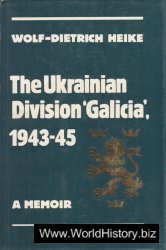Concerned with the tightening British blockade of Napoleonic Europe, the United States passed the Non-Importation Act in the spring of 1806 in an effort to convince the British to ease its restrictions on neutral TRADE. With the Democratic-Republican Party dominating both houses of Congress and the presidency, the main debate over the measure came from within Jeffersonian ranks. One group of Democratic-Republicans wanted to put a comprehensive ban on most imports from Great Britain as a statement of national determination. Ultimately, this group was defeated by another set of Democratic-Republicans with close ties to the administration of THOMAS JEFFERSON. These men wanted only a partial ban. The measure that was passed would proscribe some metal goods, cloth made of hemp or flax, certain expensive woolens, glass, finished clothing, beer, ale, and a few other items. The largest imports from Great Britain were not included—cottons, cheap woolens, iron, and steel.
The hope was that this symbolic gesture would convince the British to negotiate an acceptable agreement on the role of the United States as a neutral trader in a time of war. To emphasize this fact, the law was not to take effect until November to give the British time to consider negotiations. JOHN RANDOLPH, a Democratic-Republican who was against all commerce as a violation of the agrarian nature of the United States, proclaimed the law “A milk-and-water bill, a dose of chicken broth to be taken nine months hence.” British politicians also scoffed at the bill, considering it mere bluff and bluster. They believed that the people of the United States wanted to buy English goods and would as soon as forego trade with Britain as they would go naked. From their perspective it was a “foolish and teasing measure.” Randolph and the British were right. The law was ineffective and a sign of the weakness of the United States on the world stage. It eventually had some impact on Anglo-American trade after it was allowed to go into effect early in 1808, but only because it became an important addition to the restraints imposed by the EMBARGO OF 1807. The law remained in place into the War of 1812 (1812-15).
See also FOREIGN AFFAIRS.
Further reading: Bradford Perkins, Prologue to War, 1805-1812: England and the United States (Berkeley: University of California Press, 1968).




 World History
World History









